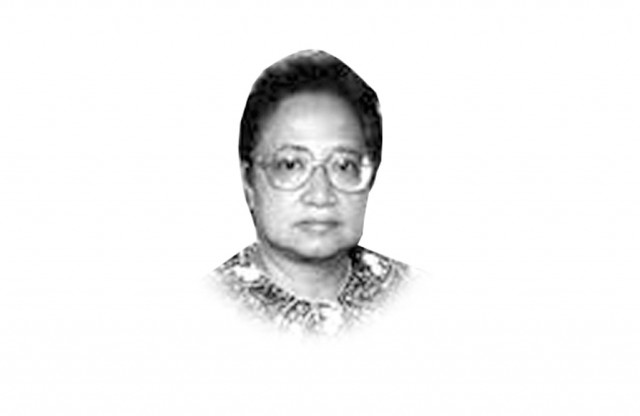At last, a UN agency for women
Finally, ordinary women were represented at the Beijing women’s conference, at Huairou, China, if only on the fringes.

At last, a UN agency for women
International conferences were once almost exclusively a male domain. The UN in New York and elsewhere of course has a lot of women, mostly middle-class-plus and well-educated like the men, if short on first-hand experience with the more harsh and unprotected world of women. But they are still outnumbered and outranked by the men, especially at meaningful and decision-making levels. After 65 years, the UN still has no formula for the inclusion in their ranks of representatives of grassroots people — let alone women — with proven experience who are able to mobilise and achieve in practice rather than on paper.
Finally, ordinary women were represented at the Beijing women’s conference, at Huairou, China, if only on the fringes. But a coalition of organisations from around the world set up a Grassroots Tent where women spoke in non-abstract, non-intellectual terms about how economies were ultimately rooted in and emanated from rural homes, about their indispensable toil and production of food and raw materials that built into national economies, exports, and profits for others. They spoke of development — or its absence — through their own needs and experiences. And because of them, the most important outcome of the Beijing Conference was to be the Huairou Commission.
Later, for the first time in the history of international conferences, when they were invited by UNCHS-Habitat, ordinary women were singled out for inclusion — peasants, factory labour, domestic workers, contract and piece-rate workers, former slave workers and such, who showcased themselves at the UN Global Conference on Habitat. Not all were articulate nor had the ‘presence’, and they needed the support of the better-equipped women who fought for human rights, but for once they were able to speak for themselves. They showed life from the angle as it was lived by the majority, not from textbook theories. They set up the first ever child-care centre at an international conference which enabled many mothers with small children to attend. They demonstrated workable grassroots solutions to community problems that they could manage for themselves. They saw to it that their concerns became part of the Habitat Agenda. The UNHCS Habitat also incorporates natural-disaster mitigation concepts in urban planning and management which now has become most relevant in Pakistan. The women were smart enough to realise the need for partnering with women’s institutions and professional women who would work with them to achieve grassroots objectives —but it was made clear that it would be the grassroots women who would set the agenda. Professional women would have as much to gain since they would get real-life input into their research and recommendations. Progress was slow, not enough men entrusted with the care and fate of womenkind, were watching or listening.
Finally the creation of UN Women, an independent agency for women was announced in July this year, with a start-up fund of half a billion dollars promised. This was half of what was asked for. UN Women would have a voice of its own that the previous four small women’s offices including Unifem did not have. It attracted little or no media attention, perhaps because it is yet to be set up, including a head for it who will also be under the secretary general of the UN. In the meantime, Pakistan’s grassroots women will be at a disadvantage, mainly because of the flood — unless their more savvy, urban, activist sisters currently into the act can give them an equal voice as hoped for.
Published in The Express Tribune, September 11th, 2010.














COMMENTS
Comments are moderated and generally will be posted if they are on-topic and not abusive.
For more information, please see our Comments FAQ